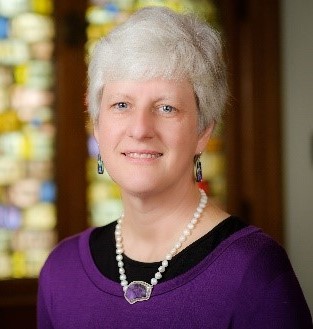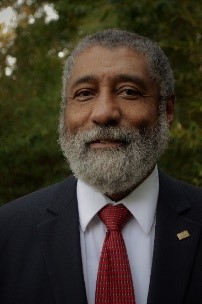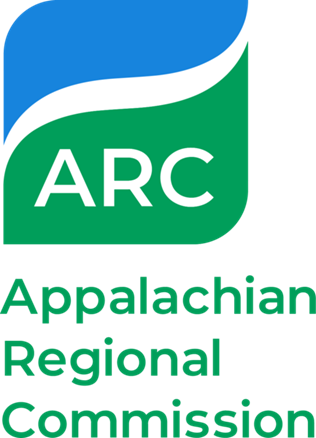Journal of Appalachian Health Advisory Board
Marian Arledge, MPH
 Marian Arledge is the Executive Director of WNC Health Network, Inc., an alliance of hospitals across a 16-county region of western North Carolina, working together and with partners to improve health and healthcare. Among other priorities, their current strategy includes supporting WNC Healthy Impact, a regionally coordinated process and partnership between public health and hospitals across the region to improve capacity for collective impact. Ms. Arledge received her Master’s in Public Health from UNC Chapel Hill and has a range of experience in community engagement and continuous improvement. She is an alumna of the Jim Bernstein Community Health Leadership Fellows Program and the North Carolina Public Health Leaders in Practice program and enjoys volunteering with a variety of non-profits in western NC.
Marian Arledge is the Executive Director of WNC Health Network, Inc., an alliance of hospitals across a 16-county region of western North Carolina, working together and with partners to improve health and healthcare. Among other priorities, their current strategy includes supporting WNC Healthy Impact, a regionally coordinated process and partnership between public health and hospitals across the region to improve capacity for collective impact. Ms. Arledge received her Master’s in Public Health from UNC Chapel Hill and has a range of experience in community engagement and continuous improvement. She is an alumna of the Jim Bernstein Community Health Leadership Fellows Program and the North Carolina Public Health Leaders in Practice program and enjoys volunteering with a variety of non-profits in western NC.
Ms. Arledge has no competing editorial or research interests regarding her role on the Editorial Board of the Journal of Appalachian Health.
Ben Chandler, JD
 Ben Chandler is president and CEO of the Foundation for a Healthy Kentucky, a nonprofit, nonpartisan foundation that works to make Kentuckians healthier. He is an eighth-generation Woodford Countian. Ben earned both his bachelor’s and his law degrees from the University of Kentucky. His state service included one term as Kentucky State Auditor and two terms as Attorney General. In February 2004, Ben was elected to the United States House of Representatives and represented Kentucky in Congress until January 2013. He then served as executive director of the Kentucky Humanities Council before joining the Foundation for a Healthy Kentucky in September 2016. Chandler also serves on the Kentucky Board of Elections.
Ben Chandler is president and CEO of the Foundation for a Healthy Kentucky, a nonprofit, nonpartisan foundation that works to make Kentuckians healthier. He is an eighth-generation Woodford Countian. Ben earned both his bachelor’s and his law degrees from the University of Kentucky. His state service included one term as Kentucky State Auditor and two terms as Attorney General. In February 2004, Ben was elected to the United States House of Representatives and represented Kentucky in Congress until January 2013. He then served as executive director of the Kentucky Humanities Council before joining the Foundation for a Healthy Kentucky in September 2016. Chandler also serves on the Kentucky Board of Elections.
Mr. Chandler has no competing editorial or research interests regarding his role on the Editorial Board of the Journal of Appalachian Health.
Jill Crainshaw, PhD, MDiv
 Jill Crainshaw is Interim Dean and Blackburn Professor of Worship and Practical Theology at Wake Forest University School of Divinity in Winston-Salem, NC. Crainshaw emphasizes in her writing and teaching how Christian worship and leadership arise from and return to human experience. Her newest book, When I in Awesome Wonder: Liturgy Distilled from Everyday Life (The Liturgical Press, September 2017), explores how worship’s sacramental elements such as bread, wine, and water are connected to local fields and farmers, waters and artisans, and food and health concerns. Dr. Crainshaw’s teaching focuses on intersections between religious leadership and sustainability, social justice, and “grounded” human experiences. Crainshaw is a governing board member of the Appalachian Ministries Educational Resources Center and is an ordained teaching elder in the Presbyterian Church (U.S.A.). In 2018, Crainshaw was awarded the Academics, Research and Engagement Award by the WFU Office of Sustainability for her teaching and research. In 2015, she was the recipient of the University's Teaching Innovation Award. Crainshaw recently edited two student publications, Uncommon Words, Common Worship (Library Partners Press, WFU, 2016) and Words Made Flesh: A Collection of Poems and Prayers for Worship (Library Partners Press, WFU, 2017). Both books feature student liturgical writing completed as part of a course project.
Jill Crainshaw is Interim Dean and Blackburn Professor of Worship and Practical Theology at Wake Forest University School of Divinity in Winston-Salem, NC. Crainshaw emphasizes in her writing and teaching how Christian worship and leadership arise from and return to human experience. Her newest book, When I in Awesome Wonder: Liturgy Distilled from Everyday Life (The Liturgical Press, September 2017), explores how worship’s sacramental elements such as bread, wine, and water are connected to local fields and farmers, waters and artisans, and food and health concerns. Dr. Crainshaw’s teaching focuses on intersections between religious leadership and sustainability, social justice, and “grounded” human experiences. Crainshaw is a governing board member of the Appalachian Ministries Educational Resources Center and is an ordained teaching elder in the Presbyterian Church (U.S.A.). In 2018, Crainshaw was awarded the Academics, Research and Engagement Award by the WFU Office of Sustainability for her teaching and research. In 2015, she was the recipient of the University's Teaching Innovation Award. Crainshaw recently edited two student publications, Uncommon Words, Common Worship (Library Partners Press, WFU, 2016) and Words Made Flesh: A Collection of Poems and Prayers for Worship (Library Partners Press, WFU, 2017). Both books feature student liturgical writing completed as part of a course project.
Dr. Crainshaw has no competing editorial or research interests regarding her role on the Editorial Board of the Journal of Appalachian Health.
Susan DuPlessis, BA
 Susan DuPlessis has spent most of her life in her native South Carolina, and it is this place that defines her. Her family has deep roots in the Appalachian region of the Carolinas.
Susan DuPlessis has spent most of her life in her native South Carolina, and it is this place that defines her. Her family has deep roots in the Appalachian region of the Carolinas.
She began her career as an individual, community-based artist with a focus on low wealth communities. For 25+ years, she had had myriad opportunities to use arts and culture as a fundamental basis for engagement and connection in nonprofit and corporate settings, locally, regionally and nationally. Today, as Director of Community Arts Development at the South Carolina Arts Commission, she engages with artists, arts organizations, educators, grassroots community leaders and culture bearers across the state. She is particularly proud to have co-directed the coastal Gullah Geechee Cultural Heritage Corridor partnership program for the agency as well as to have developed and now lead the new initiative called The Art of Community: Rural S.C. in the state's six-county 'Promise Zone.' This award-winning initiative examines how place, history and cultural practices can be used strategically to re-imagine communities especially as they grapple with the challenges of economic development, health and education concerns. The essence of her work and approach is positive, asset-based, and about learning, engagement and connectivity. Forming a national advisors’ council for this initiative has led to new strategic partnerships with organizations as diverse as The South Carolina Office of Rural Health; Rural LISC; The SC Association for Community Economic Development and Breadloaf Teachers Network at Middleberry College in Vermont. In addition to sitting as an ex officio member of several statewide arts groups, she is also a member of the Circle of Advisors for the Charleston Rhizome Collective in Charleston; the Rural Generation Working Group (part of Art of the Rural and RUPRI); and the Southeastern Creative Placemaking Planning team for the 2019 Summit in South Carolina.
Ms. DuPlessis has no competing editorial or research interests regarding her role on the Editorial Board of the Journal of Appalachian Health.
Diane M. Hall, PhD, MSEd
 Diane M. Hall earned her B.A. in Psychology from Hollins College and earned her MSEd in psychological services and her PhD in school, community, and child clinical psychology from the University of Pennsylvania. Currently, Diane is a senior policy analyst at the Centers for Disease Control and Prevention (CDC) in Atlanta, GA, where she leads a team working on translating science for policy use, conducting policy analyses, and developing policy-relevant trainings. Diane also serves as CDC’s coordinator and point of contact for rural health work. Previously, Diane held several positions in CDC’s Division of Violence Prevention, where she worked on knowledge translation, research, program evaluation, and programmatic efforts to prevent teen dating violence, intimate partner violence, sexual violence, and youth violence. Before coming to CDC, Diane held a faculty appointment at the University of Pennsylvania where she trained master’s-level students in psychology and school counseling.
Diane M. Hall earned her B.A. in Psychology from Hollins College and earned her MSEd in psychological services and her PhD in school, community, and child clinical psychology from the University of Pennsylvania. Currently, Diane is a senior policy analyst at the Centers for Disease Control and Prevention (CDC) in Atlanta, GA, where she leads a team working on translating science for policy use, conducting policy analyses, and developing policy-relevant trainings. Diane also serves as CDC’s coordinator and point of contact for rural health work. Previously, Diane held several positions in CDC’s Division of Violence Prevention, where she worked on knowledge translation, research, program evaluation, and programmatic efforts to prevent teen dating violence, intimate partner violence, sexual violence, and youth violence. Before coming to CDC, Diane held a faculty appointment at the University of Pennsylvania where she trained master’s-level students in psychology and school counseling.
Dr. Hall has no competing editorial or research interests regarding her role on the Editorial Board of the Journal of Appalachian Health.
Michael Meit, MA, MPH
 Michael Meit serves as Director of the East Tennessee State University Center for Rural Health and Research, located in the Appalachian Highlands of Northeast Tennessee, and as Deputy Director for ETSU’s HRSA-funded rural health research center, the ETSU/NORC Rural Health Research Center. Michael currently leads studies focused on the evaluation of rural health programs, public health financing, opioid misuse, and emergency preparedness, among others. He is a long-time rural public health researcher and evaluator, having worked on federal, state and local projects for over 20 years. Michael also serves as a co-investigator for the HRSA funded Center for Workforce Research in Public Health. He serves on the editorial boards for the Journal of Public Health Management and Practice, the Journal of Appalachian Health, Journal of Rural Mental Health, and Public Health Reports, and is a Governing Councilor for the American Public Health Association. In 2019 Michael was named the National Rural Health Association’s Outstanding Researcher.
Michael Meit serves as Director of the East Tennessee State University Center for Rural Health and Research, located in the Appalachian Highlands of Northeast Tennessee, and as Deputy Director for ETSU’s HRSA-funded rural health research center, the ETSU/NORC Rural Health Research Center. Michael currently leads studies focused on the evaluation of rural health programs, public health financing, opioid misuse, and emergency preparedness, among others. He is a long-time rural public health researcher and evaluator, having worked on federal, state and local projects for over 20 years. Michael also serves as a co-investigator for the HRSA funded Center for Workforce Research in Public Health. He serves on the editorial boards for the Journal of Public Health Management and Practice, the Journal of Appalachian Health, Journal of Rural Mental Health, and Public Health Reports, and is a Governing Councilor for the American Public Health Association. In 2019 Michael was named the National Rural Health Association’s Outstanding Researcher.
Mr. Meit has no competing editorial or research interests regarding his role on the Editorial Board of the Journal of Appalachian Health.
Bob Reeder, JD
 Bob currently serves as a Program Director for Rural LISC (the rural component of the Local Initiatives Support Corporation, the nation’s largest community development support corporation) which partners with 80 local community based, mission-driven organizations to implement their visions of ‘home grown’ sustainable rural community development activities. Rural LISC’s portfolio currently covers organizations working in 45 states, covering over 2000 rural counties.
Bob currently serves as a Program Director for Rural LISC (the rural component of the Local Initiatives Support Corporation, the nation’s largest community development support corporation) which partners with 80 local community based, mission-driven organizations to implement their visions of ‘home grown’ sustainable rural community development activities. Rural LISC’s portfolio currently covers organizations working in 45 states, covering over 2000 rural counties.
He is a 13-year veteran of Rural LISC and has built a career devoted to social and economic justice, permanently affordable housing, equitable public policy advocacy, community engagement and comprehensive community and economic development.
His areas of expertise include housing development technical assistance; grant and loan assistance; organizational capacity building assistance; grass roots meeting facilitation; and comprehensive community and economic development focusing on economic, cultural and environmental equity. Most recently he has led the charge within Rural LISC and worked with several national Arts and Culture-based private and governmental entities to elevate and to provide funding to support the active inclusion of creative place making among the range of strategies utilized to help revive distressed rural communities.
He actively represents Rural LISC in both national and regional forums as a panelist and moderator. He currently serves as Advisory Board Co-Chair of ‘The Art of Community: Rural South Carolina’ and was an inaugural Advisory Board member of ‘Next Generation: The Future of Arts & Culture Placemaking in Rural America’, a collaboration between RUPRI and Art of the Rural. He has also served in various appointed and elected volunteer capacities in South Carolina, Montgomery County MD, and Washington DC.
He earned a BA degree in Government from Wofford College in Spartanburg SC, and his JD degree from Vanderbilt University School of Law in Nashville TN.
Dr. Reeder has no competing editorial or research interests regarding his role on the Editorial Board of the Journal of Appalachian Health.
Rebecca Scott, PhD
 Rebecca R. Scott, Director of Undergraduate Studies, Sociology Department at the University of Missouri, teaches courses in social theory, gender, race, and class, cultural studies, and environmental sociology. She is the author of Removing Mountains: Extracting Nature and Identity in the Appalachian Coalfields (Minnesota, 2010), and has published articles in the Journal of Appalachian Studies, Work, Employment and Society, and other journals. She is currently serving as the editor of the Journal of Appalachian Studies.
Rebecca R. Scott, Director of Undergraduate Studies, Sociology Department at the University of Missouri, teaches courses in social theory, gender, race, and class, cultural studies, and environmental sociology. She is the author of Removing Mountains: Extracting Nature and Identity in the Appalachian Coalfields (Minnesota, 2010), and has published articles in the Journal of Appalachian Studies, Work, Employment and Society, and other journals. She is currently serving as the editor of the Journal of Appalachian Studies.
Dr. Scott has no competing editorial or research interests regarding her role on the Editorial Board of the Journal of Appalachian Health.
Allen Smart, MA, MPH
 Allen Smart is a national spokesperson and advocate for rural philanthropy under his practice – RuralwoRx. He is also currently the Project Director for a national rural philanthropic project based at Campbell University in Buies Creek, North Carolina. He also consults with regional and national foundations on rural and philanthropic strategy. Allen’s writing appears regularly at The Daily Yonder site, with Exponent Philanthropy and on his own site at Campbell University.
Allen Smart is a national spokesperson and advocate for rural philanthropy under his practice – RuralwoRx. He is also currently the Project Director for a national rural philanthropic project based at Campbell University in Buies Creek, North Carolina. He also consults with regional and national foundations on rural and philanthropic strategy. Allen’s writing appears regularly at The Daily Yonder site, with Exponent Philanthropy and on his own site at Campbell University.
Allen is the former Interim President, vice president of programs and director of the Health Care Division at the Kate B. Reynolds Charitable Trust, Prior to coming to the Trust in 2006, Allen was the vice president of programs at The Rapides Foundation, a healthcare conversion funder, in Alexandria, Louisiana.
Mr. Smart has no competing editorial or research interests regarding his role on the Editorial Board of the Journal of Appalachian Health.
Katy Stigers, MA
 Katy Stigers is the research director at Fahe, a Network of 50+ locally-rooted nonprofits which is on a mission to eliminate persistent poverty in Appalachia. In this role she ensures that Fahe effectively measures and communicates the impact of its work. She has experience in non-profit administration and program research. She holds an MA in urban affairs from Saint Louis University and completed additional graduate studies at Emory University in the department of political science.
Katy Stigers is the research director at Fahe, a Network of 50+ locally-rooted nonprofits which is on a mission to eliminate persistent poverty in Appalachia. In this role she ensures that Fahe effectively measures and communicates the impact of its work. She has experience in non-profit administration and program research. She holds an MA in urban affairs from Saint Louis University and completed additional graduate studies at Emory University in the department of political science.
Ms. Stigers has no competing editorial or research interests regarding her role on the Editorial Board of the Journal of Appalachian Health.





Social Media Links